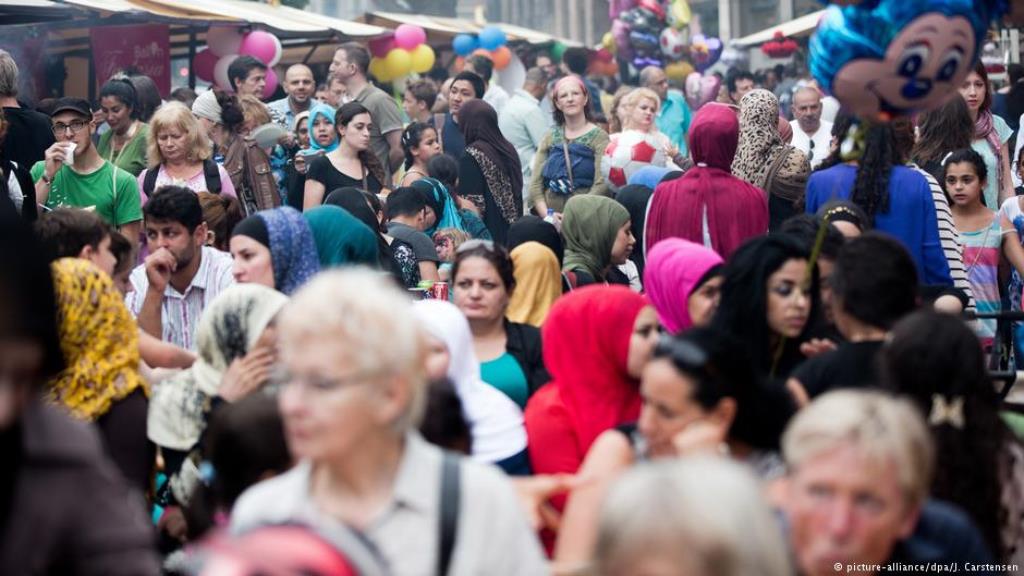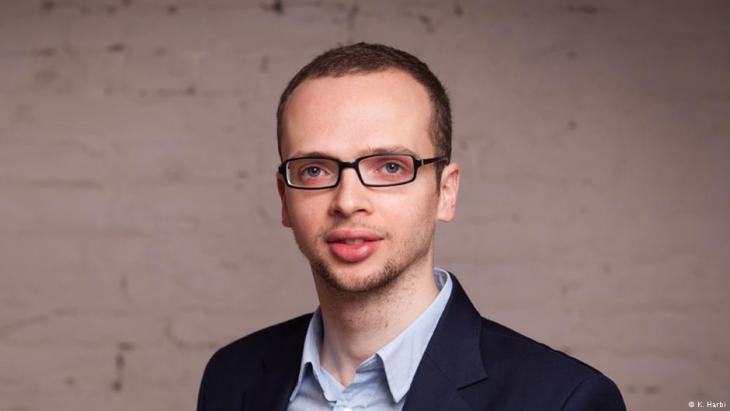Integration – a process of give and take

The #MeTwo campaign, initiated by activist Ali Can, has provided thousands of Germans with a migration background with the opportunity to tell their stories and share their experiences of everyday racism at school, work or on the street. Those experiences reveal that no matter how integrated many minority groups have become, they are still not accepted by many in German society.
This perceived lack of recognition has also been confirmed by the recent Ipsos study, according to which only 46 percent of Germans questioned believed it possible to be both Jewish and German, while a mere 26 percent believed it possible to be both Muslim and German.
Little has changed since Einstein
Footballer Mesut Ozil‘s recent decision to quit the German national team and his much-cited statement, "I am German when we win, but an immigrant when we lose," evidently touched a nerve among many members of the various ethnic and religious minorities in Germany and sparked the #MeTwo campaign. It is a feeling that has very likely been shared by minorities before the present generation.
Just under a century ago, in 1922, another famous German was expressing thoughts similar to those of Ozil. "If my theory of relativity is proven successful," said Albert Einstein, "Germany will claim me as a German. Should my theory prove untrue, Germany will declare that I am a Jew." In his address to the French Philosophical Society at the Sorbonne, the physicist gave vent to the ambivalent feelings preoccupying many of Germany’s Jews at the turn of the century. They had been through a radical process of integration in the decades prior to this – nevertheless, acceptance would still be denied to them.
The Enlightenment period and subsequent emancipation laws saw a gradual alleviation of the isolation the Jewish people had endured in the German-speaking countries for more than a thousand years. At the same time, with their acquisition of civil rights came the proviso that social participation was conditional on integration. Immanuel Kant himself said: "Nothing will come of it; as long as Jews are Jews and allow themselves to be circumcised, they will always be more harm than use to civil society." The intellectuals of the 19th century – such as Humboldt, Herder and Hegel – were in favour of equal rights for the Jews, though they were also of the opinion that Jews would have to change radically, even to the point of giving up Judaism, if integration was ever to succeed.

Integration is not about self-denial
The Enlightenment-inspired pressure to integrate led many Jews to opt for a partial or complete abandonment of their own traditions. They studied Kant and Lessing, became enthusiastic readers of the poetry of Goethe and Schiller and devoted listeners to the music of Wagner.
The Yiddish language, study of the Talmud and klezmer music were all suddenly frowned upon. In the hope of gaining equality, liberal Jews introduced religious reform in accordance with Protestant practices and renounced the traditional observances of dietary laws, circumcision and the Sabbath. Organs began to appear in synagogues; rabbis took to proclaiming the Word of God in accordance with the principles of Schleiermacher's homiletics, a Protestant preaching doctrine. Some even went a step further by converting to Christianity.
Conversion to other religions was not uncommon among Jews in the 19th century. In Berlin many of the Jewish middle classes had converted to Christianity by the turn of the 20th century.
Although many Jews pushed their Jewishness into the background, or even gave it up altogether, they were still regarded as 'the others'. Heinrich Heine was one of the Jewish converts to Christianity – but, even after his conversion, he still found himself the object of anti-Semitic polemics. The rise of political Zionism at the end of the 19th century would be a consequence of the sense of disappointment felt by the Jews over the failure of their promised emancipation to materialise.
The father and main founder of modern political Zionism, the Austro-Hungarian journalist Theodor Herzl, was initially a proponent of assimilation and viewed the mass conversion of young Jews to the Christian faith as the best way forward. He refused to allow his son to be circumcised and at home the family celebrated Christmas rather than Hanukkah. It was not until 1895, in the wake of the inflammatory outpouring of anti-Semitic prejudice against the French Jewish army officer Alfred Dreyfus, that Herzl was forced to the realisation that no amount of assimilation by minorities would suffice to appease the haters. He concluded that the depth of anti-Semitic feeling in Europe left no future there for the Jews. From then on, he was to become the advocate of political Zionism.
Integration is a two-way street
A century after Herzl, the question of what it means to be German needs to be answered. Of course, we cannot draw direct comparisons between what happened in the 19th century and what is happening today – but the similarities are striking. Anti-Semitism has not gone away, as a glance at the many #MeTwo contributions from Jewish users makes patently obvious.
Muslims, people of colour, blacks, Sinti and Roma as well as members of other minorities have also felt moved to contribute to the campaign, to speak out and to say that it is not enough for only the minority to integrate – the majority also must make the effort. Integration cannot be one-sided, it is always a two-way process.
Armin Langer
© Deutsche Welle/Qantara.de 2018
Translated from the German by Ron Walker
